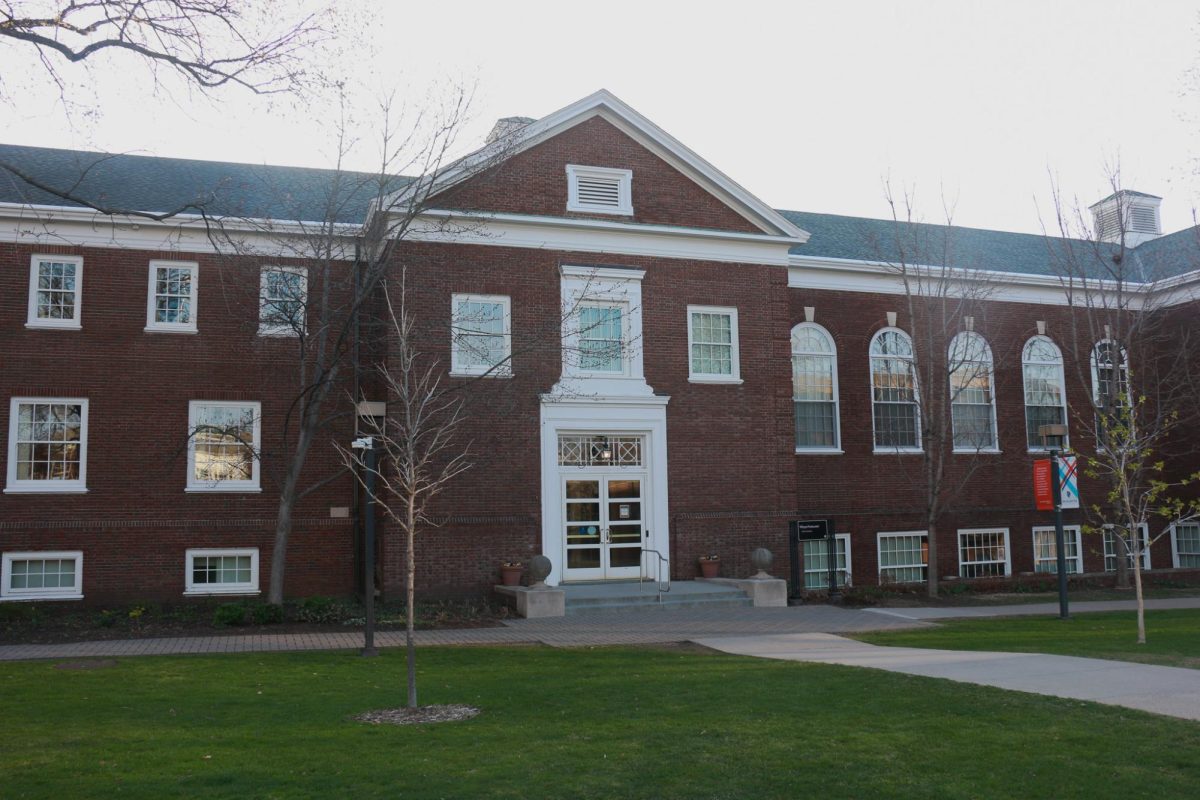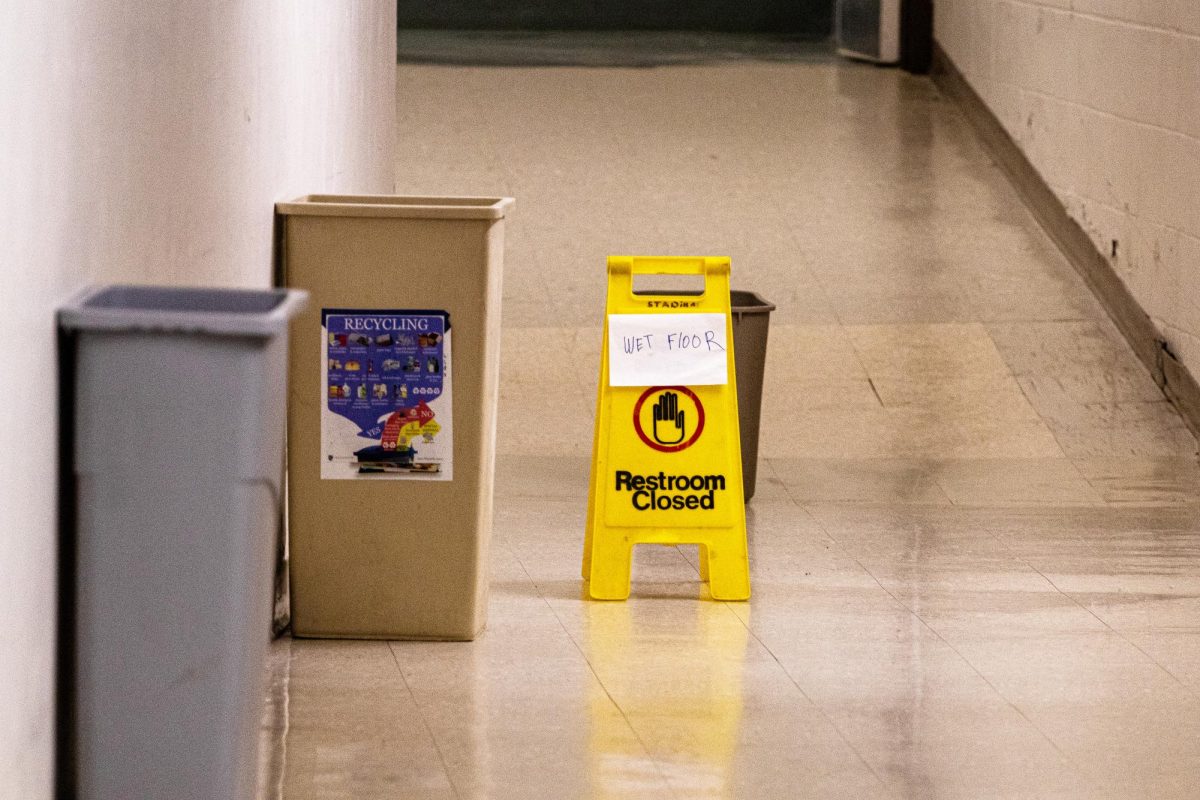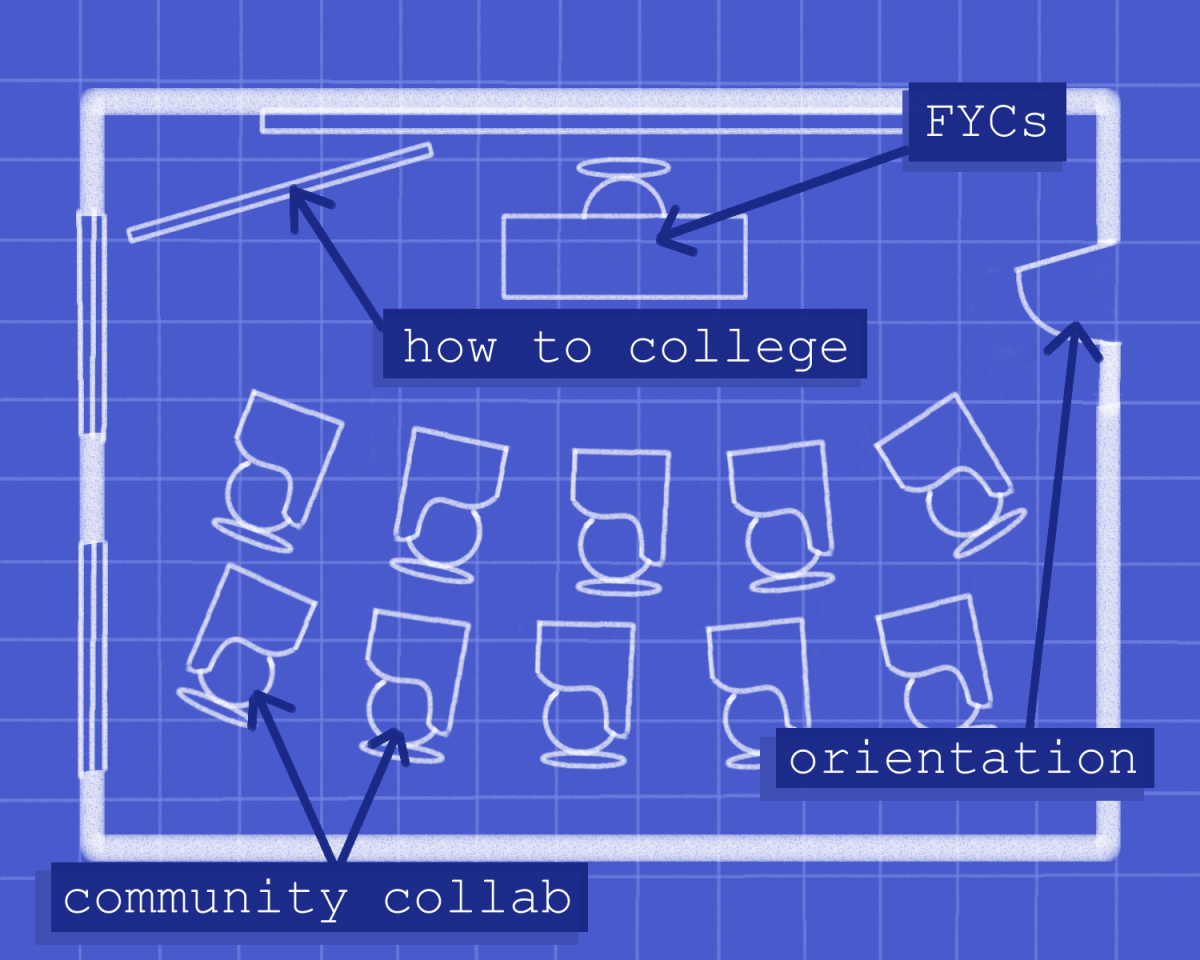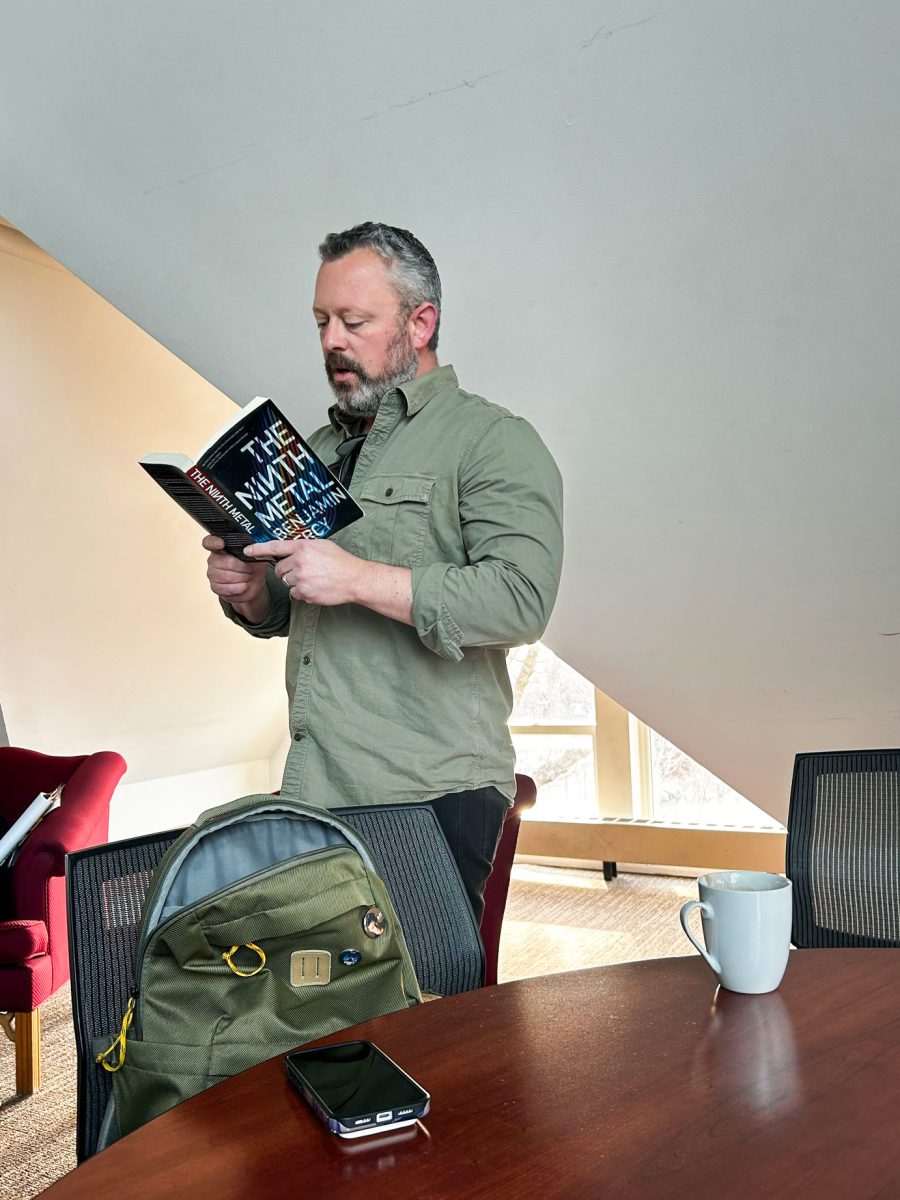People choose to come to Macalester for a variety of reasons: academics, environment, culture, the list goes on. But I’ve never met anyone whose top reason is the food. Cafe Mac, the main dining hall at Macalester, is a frequent topic of conversation. Be it the limited options, quality of food, or just general frustration, Cafe Mac and its partner Bon Appetit are constantly under fire; however, representatives of the college and Bon Appetit describe underlying difficultes in food service at Mac.
Bon Appetit is the leading dining vendor for scratch-made locally sourced food in 34 states, managing cafes in more than 1,000 corporations, universities, and specialty venues. They pride themselves on fresh, local ingredients from small farms, chefs who create their own menus, and staying away from a “static” meal plan.
These are the reasons Macalester chooses to dine with Bon Appetit, Dave Berglund, associate VP for finance, and Matt Rumpza, former director of purchasing, auxiliaries & accounts payable, wrote in an email to The Mac Weekly.
The cons of this plan? It can be hard to balance menus and accommodate people with alternative dining preferences and needs. People who are vegetarian or have allergies find it challenging to eat at Cafe Mac, sometimes only being able to eat a salad. This year has been exceptionally hard for those with dietary restrictions; the allergy-free option and the vegan station have been replaced with a complicated plan of “if not this, then that, but only on these days of the week” that is not clearly labeled for students.
Eleanor Malcolm ’26 serves on the Macalester Dining Advisory Committee (MDAC), where any changes to dining at Macalester would originate from. She is a student with allergies and a former Cafe Mac worker, having experience with both sides of the issues within dining. Malcolm’s frustrations with dining at Macalester started on her first day.
“On the very first day during orientation, I ate at Cafe Mac and I think that cheesy eggs had gotten into the regular eggs [and] I was sick for the rest of the day,” Malcolm said. “I felt scared to eat at Cafe Mac, which is really hard to do when there’s not great kitchen options. I ended up not eating on the meal plan and trying to eat protein bars and stuff in my room for two months, which really affected my schoolwork, affected my time and my social life because I wasn’t eating in the cafeteria with other people.”
General manager for Bon Appetit at Cafe Mac, Amy Tomes, notes this as one of a myriad of problems they are hoping to address through work with students and other campus departments on the MDAC.
“I have [relationships with] business services, disability services and sustainability,” Tomes said. “[These] take up the most of my time in terms of working together, collaborating, talking about how all of this works and those are the same areas I would have conversations with if there were changes needed.”
The biggest challenge Bon Appetit faces, according to Tomes, is something students might overlook: inflation.
“The inflation rate is astronomically higher than it’s been in the past, so we’re up against a lot just to maintain a healthy place financially,” Tomes said. “The high cost of inflation coupled with standards from Bon Appetit has put us in a difficult place.”
Bon Appetit works with business services to ensure student satisfaction and experience, which Berglund and Rumpza highlighted as the top priority for dining on campus.
“We focus on balancing student access to meals with flexibility,” they wrote in an email to The Mac Weekly. “We offer three primary plans so students can choose their preferred distribution between swipes and flex points. Our last student survey indicated that students overwhelmingly favored our current ‘all you care to eat’ model versus an ‘a la carte’ model.”
Macalester requires students living on campus to be on one of three meal plans: one with 19 meal swipes a week and 100 flex points, one that is 14 meal swipes a week and 225 flex points, or one with 10 meal swipes a week and 300 flex points. Meal swipes allow entry into Cafe Mac or a meal at one of several satellite locations and flex points act as real money for use at specific locations. For the 2023/24 academic school year, all three plans cost $7,088.
Regardless of meal plan, of the approximately 1,300 students living on campus, only two-thirds are dining with Bon Appetit. On Jan. 19, the company tracked 2,398 transactions across all on-campus dining venues — 1,741 at Cafe Mac. This averages out to roughly 800 swipes per meal, some of which are claimed by off-campus students on the commuter plan. And those lost meals are not made up by flex points; only 242 students used flex points that day.
One topic of discussion among students has been the possibility of a more flexible meal plan or variances in cost. But this notion ignores the fact that there are more costs than just the food. That total board number is an overestimate of what is actually needed because there are additional costs; Bon Appetit is a business after all.
“As is standard for dining service plan design, the cost of the meal plan assumes that a certain percentage of meal swipes will go unused,” Berglund and Rumpza wrote. “If we instituted a mechanism for unused meal swipes to be redeployed for alternate use, it would directly impact food costs, labor and ultimately the board rate charged to students.”
In past surveys done by campus departments, students favor this meal system and the ideals Bon Appetit holds over alternatives. These alternatives have not been seriously considered in almost 30 years, since Macalester first entered into a contract with Bon Appetit.
After renewing their 10-year contract in 2020, Macalester and Bon Appetit set a goal to prioritize student engagement and input, remembering the students who are being served.
“[We want to] ensure that all students feel safe, whether they have an allergy or not, and understand we’re not a company that reads recipes,” Tomes said. “[We want to] engage and message to students in a way that we feel like students understand who we are and what we do on a consistent basis.”















Shameless Cafe Mac Apologist • Feb 2, 2024 at 10:19 pm
It’s food. Sometimes it’s hit or miss, usually it’s pretty decent, and there are even days when it’s – dare I say it – good. That’s way better than what most students have access to in the U.S. I’ll worry about Cafe Mac when there are no more children in St Paul going to bed hungry every night, and when public education gets the funding it needs to provide the same quality meals that Macalester students get to every student. Until then, most criticism of Cafe Mac reeks of privilege. My only concern is how Bon App treats it workers, who deserve better pay, better working conditions, and a union.
Cafe Mac Neutralist • Feb 4, 2024 at 8:33 pm
I think your criticism of Cafe Mac complainants is a bit shortsighted. This isn’t just about food quality, it’s about students with health-based dietary restrictions being poisoned by lax cross-contamination standards and not being provided adequate alternatives. Having access to food doesn’t help if the food you’re given sends you into anaphylactic shock.
Reformed Cafe Mac Apologist • Feb 7, 2024 at 3:35 pm
Sure, food service can always improve on that front (and I’m curious, has Cafe Mac food sent someone into anaphylactic shock due to lax cross-contamination standards? That wasn’t in the article). But in my experience that’s not the most common complaint I hear about the food from Mac students, which normally centers on, as the author writes “limited options, quality of food, or just general frustration.” Those complaints in my view are overblown and expose a level of privilege among the Macalester community we don’t talk about enough. But I appreciate the pushback on the generalizations in my first comment.